Ban the Use of Monkeys for Biomedical Experiments
Update (August 15, 2025): Progress! The Fundación Instituto de Inmunología de Colombia (FIDIC), a facility that PETA exposed in 2024, has shut down. For 40 years, the owner of this decrepit laboratory abducted owl monkeys from forests and tormented them in pointless experiments for a malaria vaccine that was never produced.
The win comes on the heels of Colombia’s Ministry of Environment and Sustainable Development’s commitment to reviewing current regulations and exploring ways to protect monkeys from being captured for use in biomedical experiments after hearing from PETA and more than 56,000 PETA supporters.
Now, it’s time for the Ministry of Science, Technology, and Innovation to take the next step: ban the use of monkeys in these experiments altogether. Take action now!
Originally published on June 4, 2024:
PETA has obtained records proving that wholesale abuse and neglect at a monkey laboratory in Colombia led to the deaths of 47 monkeys—most of them members of a now-endangered species—in just 14 months, while the regional agency charged with oversight did nothing as regulation after regulation was violated and the body count rose.
This is the second monkey-harming facility in the country that PETA has uncovered. We need your help to pressure the Colombian government to take immediate action to stop monkeys from being ripped from their forest homes for use in archaic and pointless biomedical experiments.
Please TAKE ACTION below.

What Exactly Is Happening?
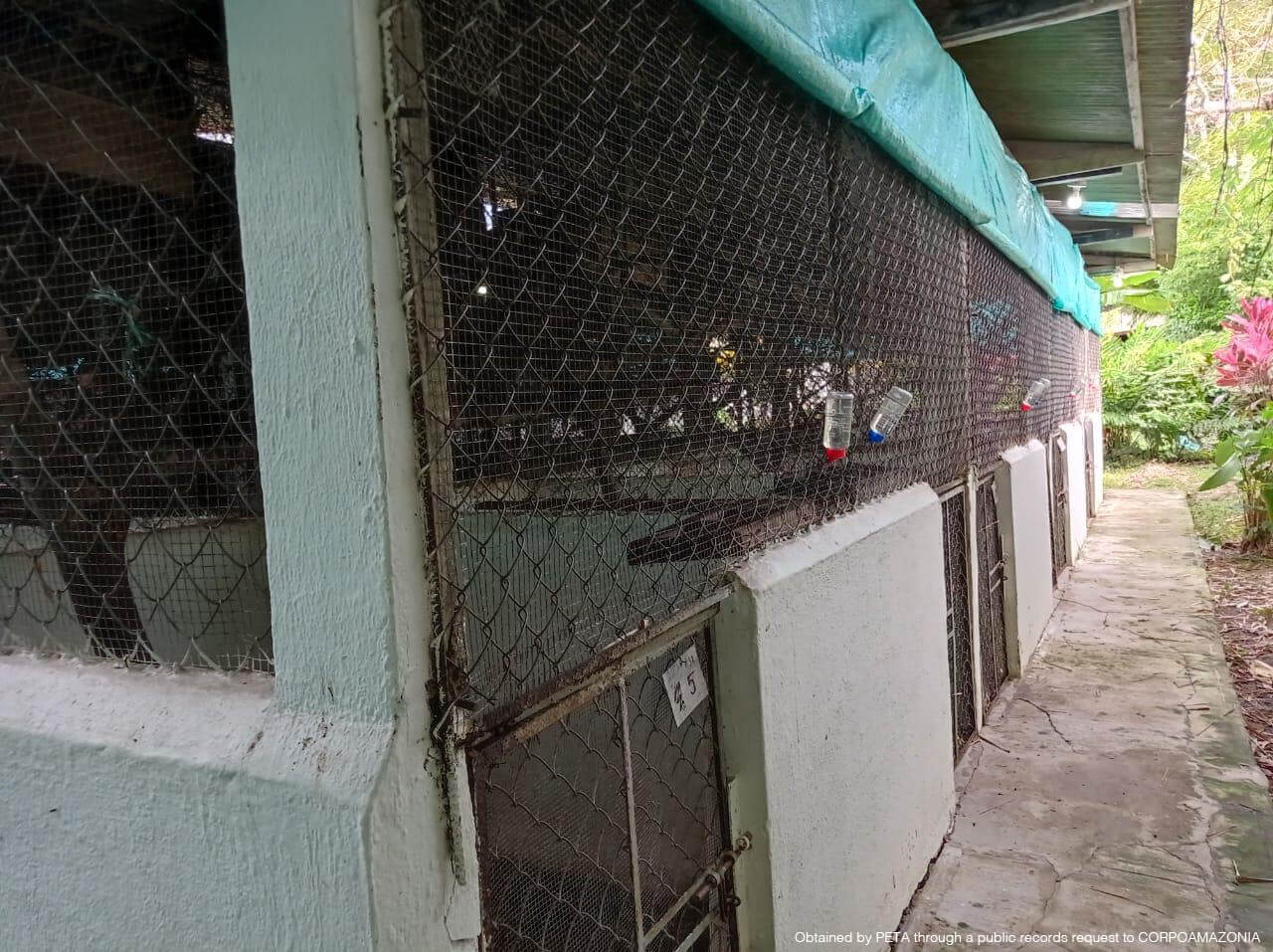
PETA has discovered that the facility, Fundación Instituto de Inmunología de Colombia (FIDIC), flouted numerous animal welfare, environmental, and public health regulations—with apparent impunity because the regional agency charged with enforcement turned a blind eye.
Experimenters used now-endangered monkeys in COVID-19 experiments without the necessary permits and denied monkeys veterinary care, leaving some to die painfully of tetanus or sepsis. Others were found dead in cages with signs of violence after being attacked by stressed cagemates.
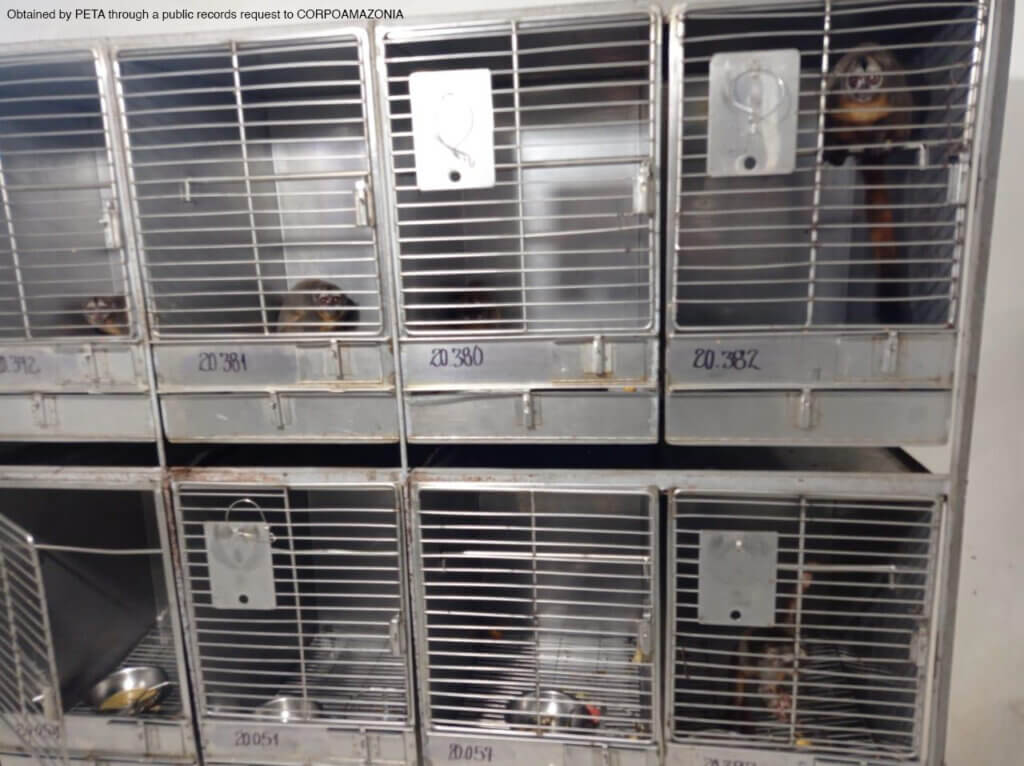
Records show that 47 monkeys—12% of the total caged there—died between March 2021 and May 2022. But necropsies to determine the cause of death were performed on only a handful of them.
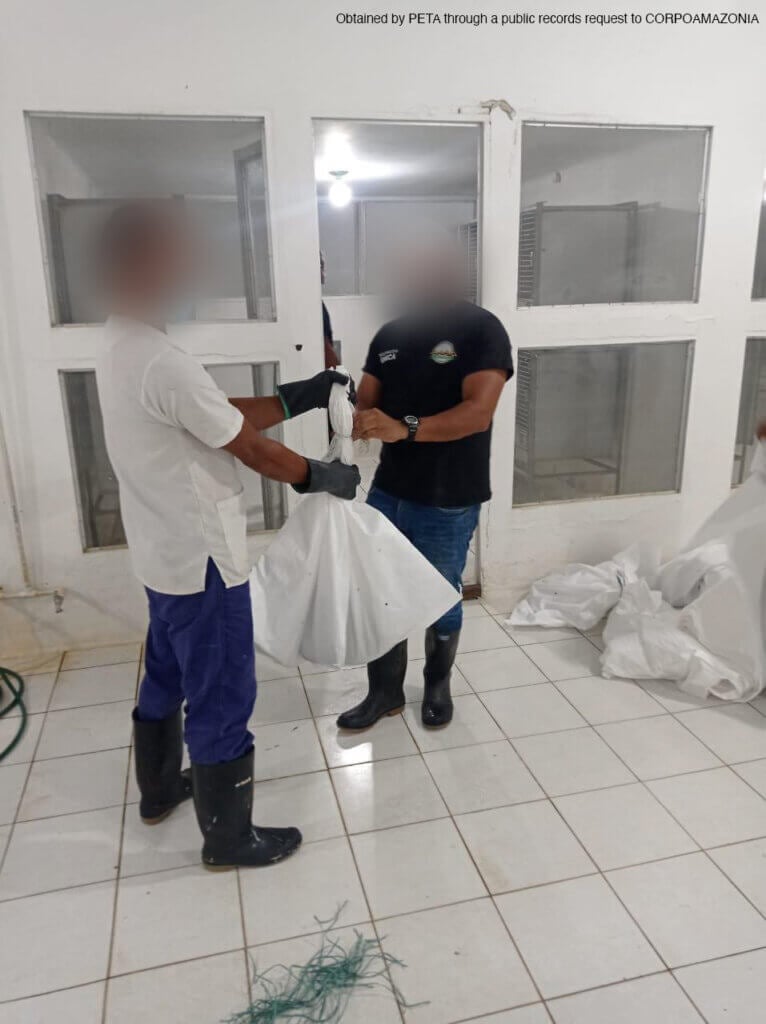
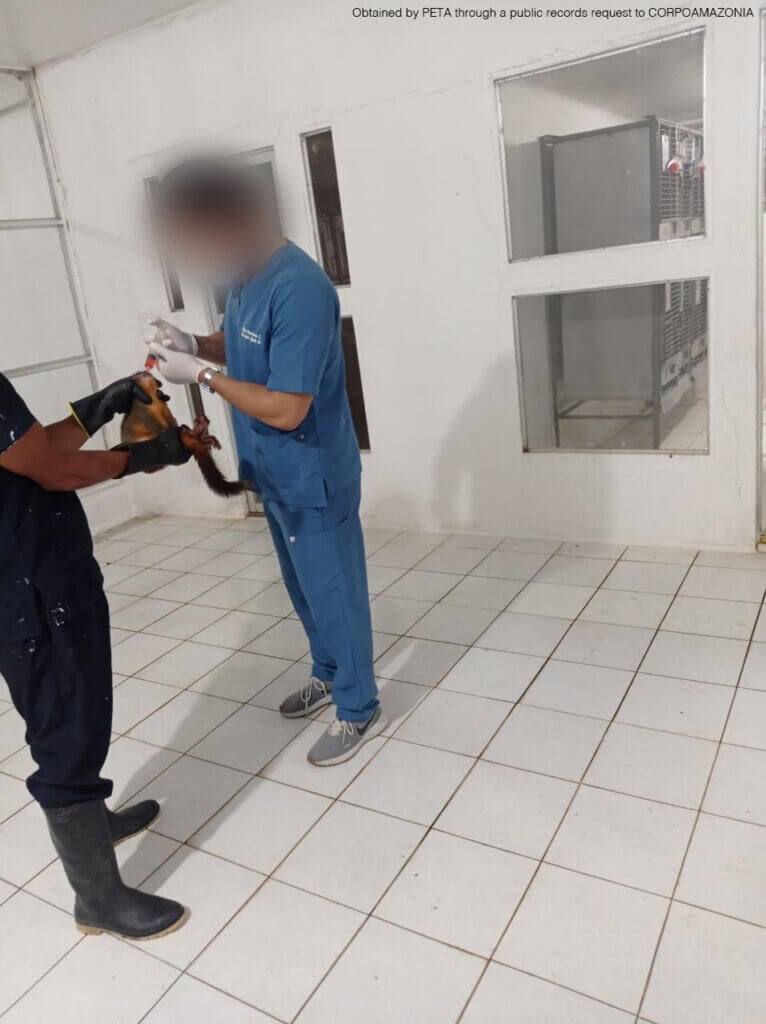
The experimenters reported that, inexplicably, 18 of these animals died from “broncho-aspiration,” meaning they probably choked on food, water, or their own saliva. Heart attacks claimed nine more lives—also inexplicably. Staff never investigated these deaths. Other monkeys died from “cannibalism,” “hypothermia,” or “heat stress.”
One monkey died from a “severe hemorrhage” after a fractured limb went untreated for days.
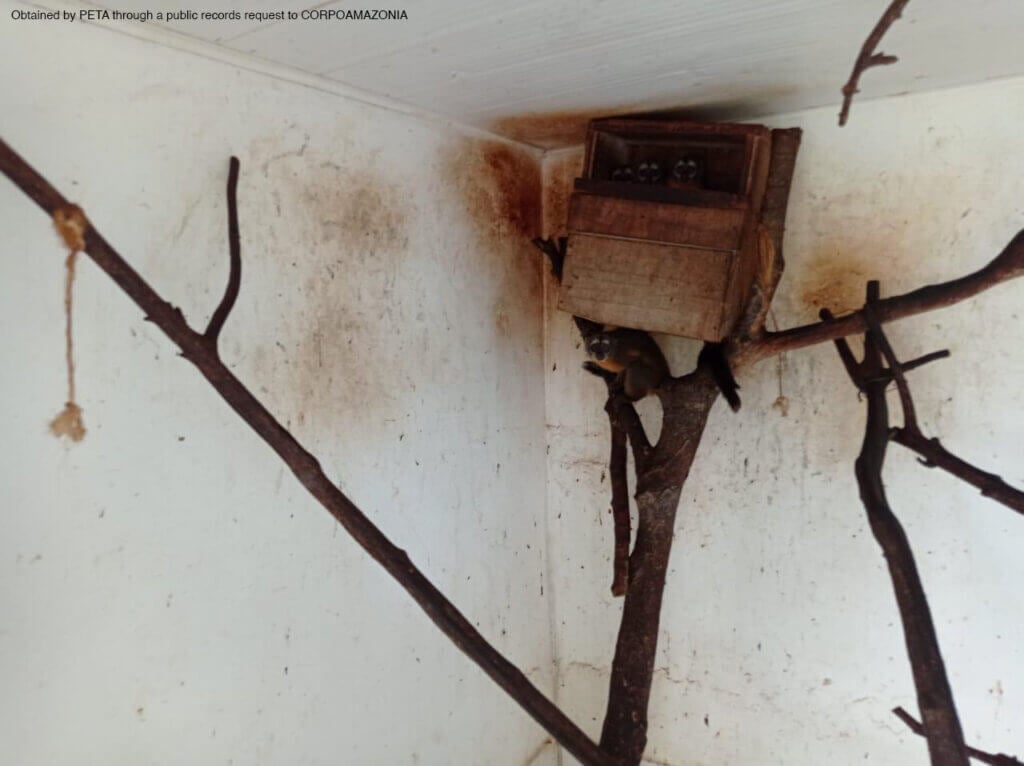
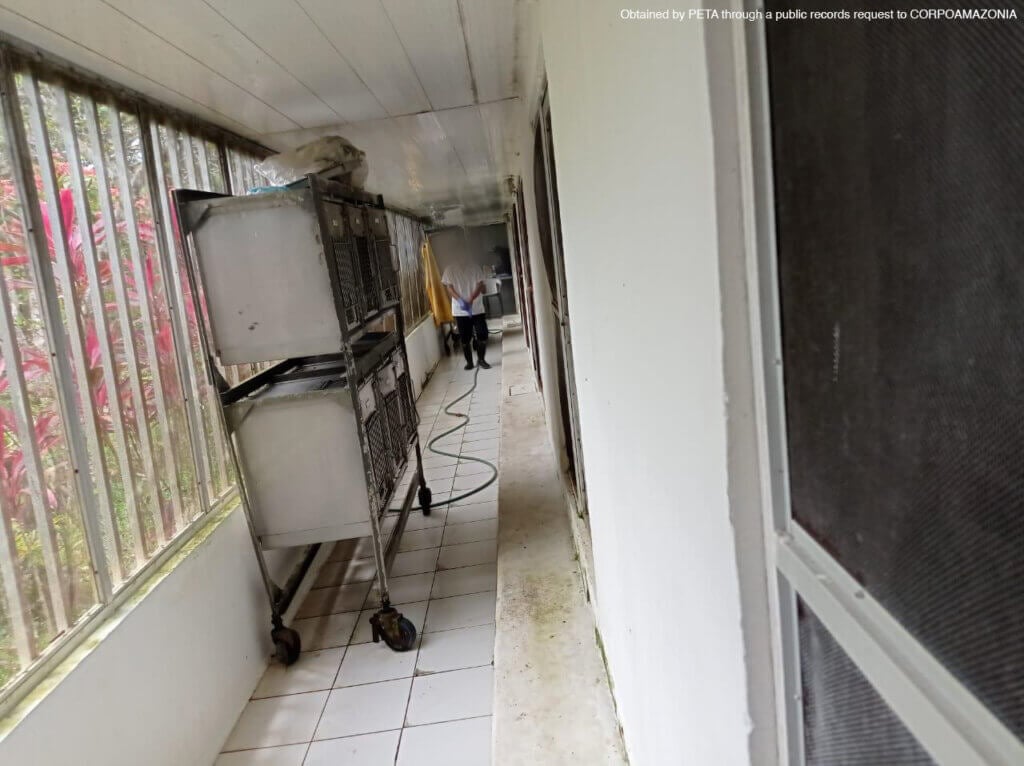
As if more proof were needed to show what a disaster this laboratory is, 19 monkeys escaped through openings in its walls and ceilings.
Records also seem to indicate that staff were nowhere to be found when most of the monkeys died and that they recorded the deaths only when they happened to find their bodies. PETA also found that the facility, which caged hundreds of monkeys, operated without a veterinarian for seven months in 2021.
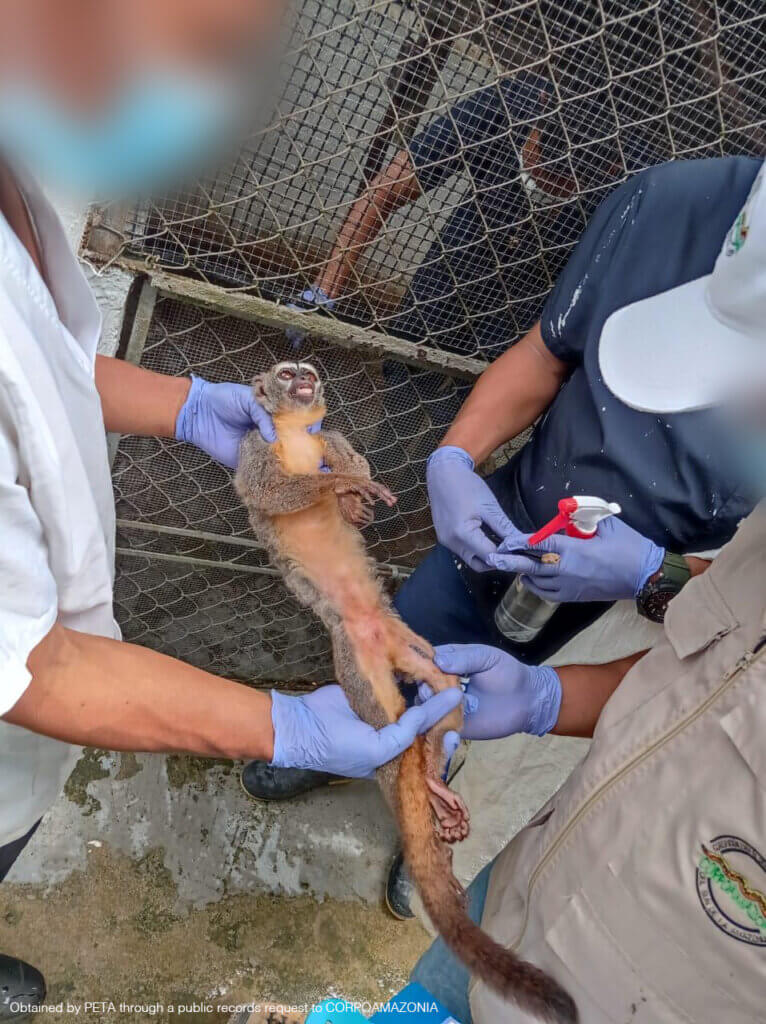
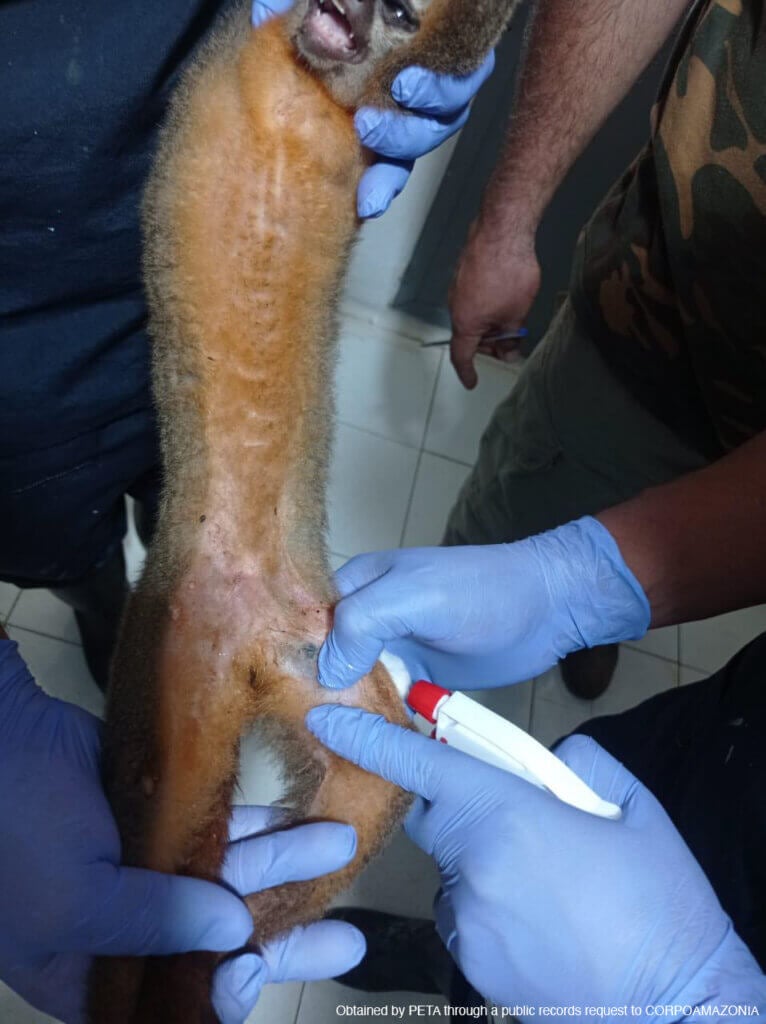
Records from a 2021 inspection of the facility show that 66 monkeys pulled their own hair out, 48 were underweight, and four had eye problems. Months later, more than half the facility’s monkeys showed signs of malnutrition and had other significant health problems.
Pushing the Stone Up the Hill of Failure
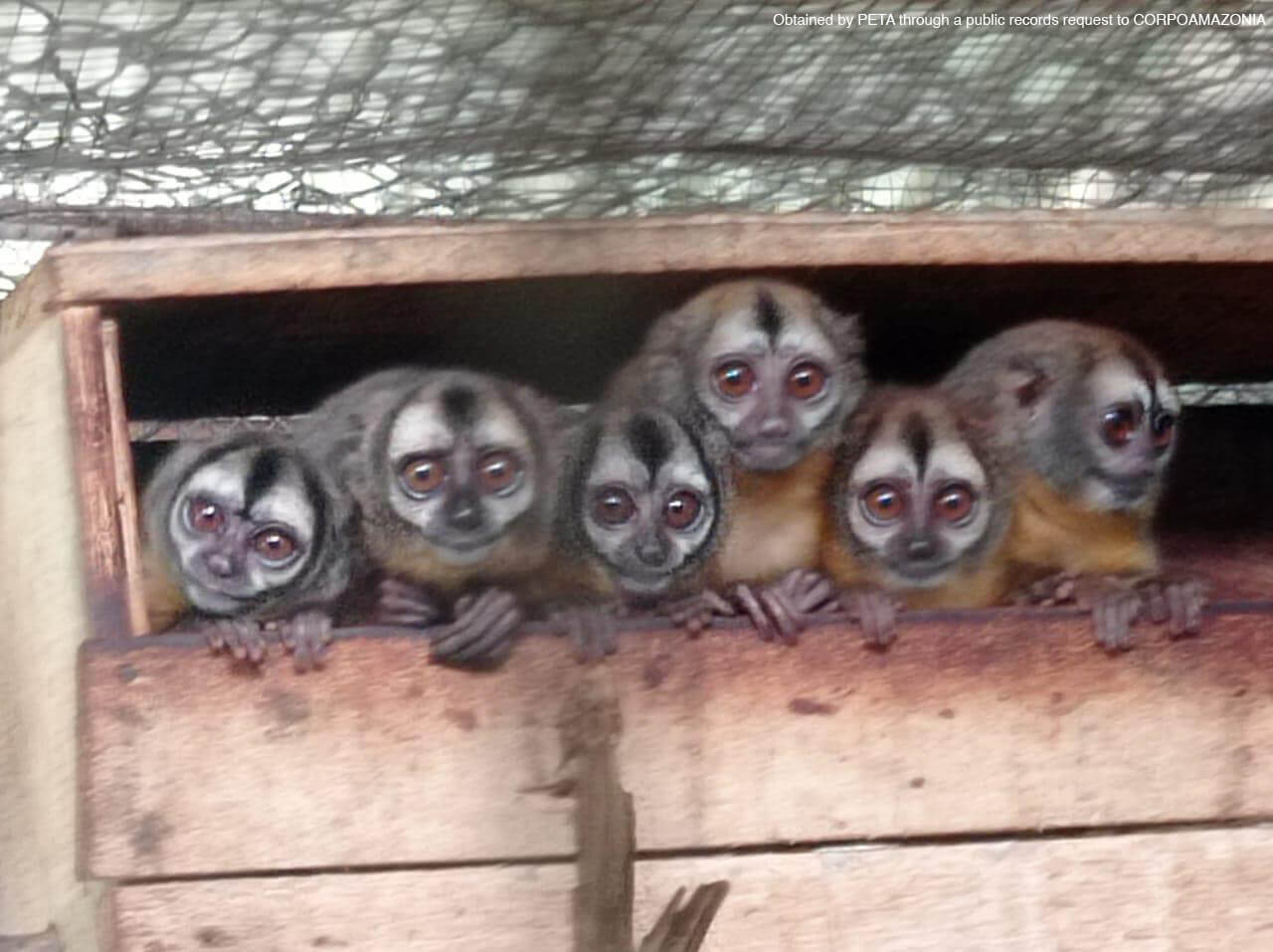
Manuel Elkin Patarroyo, the facility’s founder and director, experimented on animals for four decades, purportedly attempting to develop a malaria vaccine—an effort that he completely failed at.
Toothless Law Enforcement
This hellhole—located on the banks of the Amazon River—is the second decrepit animal experimentation facility in Colombia where PETA has found systemic and wide-ranging animal abuse.
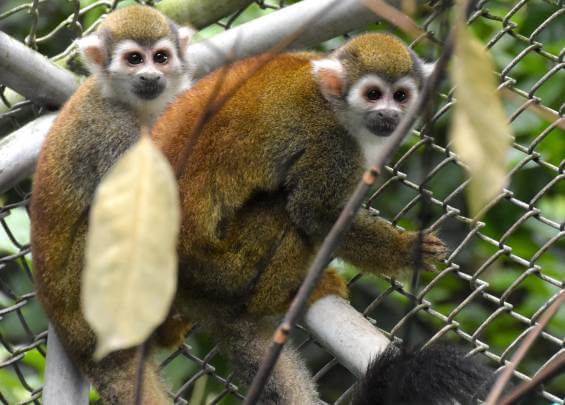 © Aymer Álvarez/El País
© Aymer Álvarez/El PaísIn 2023, our 18-month investigation into the Caucaseco Scientific Research Center—which operated torture chambers masquerading as science centers—prompted the rescue of all animals caged there and charges of environmental crimes for the experimenters. The National Institutes of Health, which pumped millions of dollars into the facilities, cut off U.S. taxpayer funds. The Caucaseco experimenters also abducted monkeys from their forest homes—a practice that’s legal in Colombia.
Hypocrisy in Action
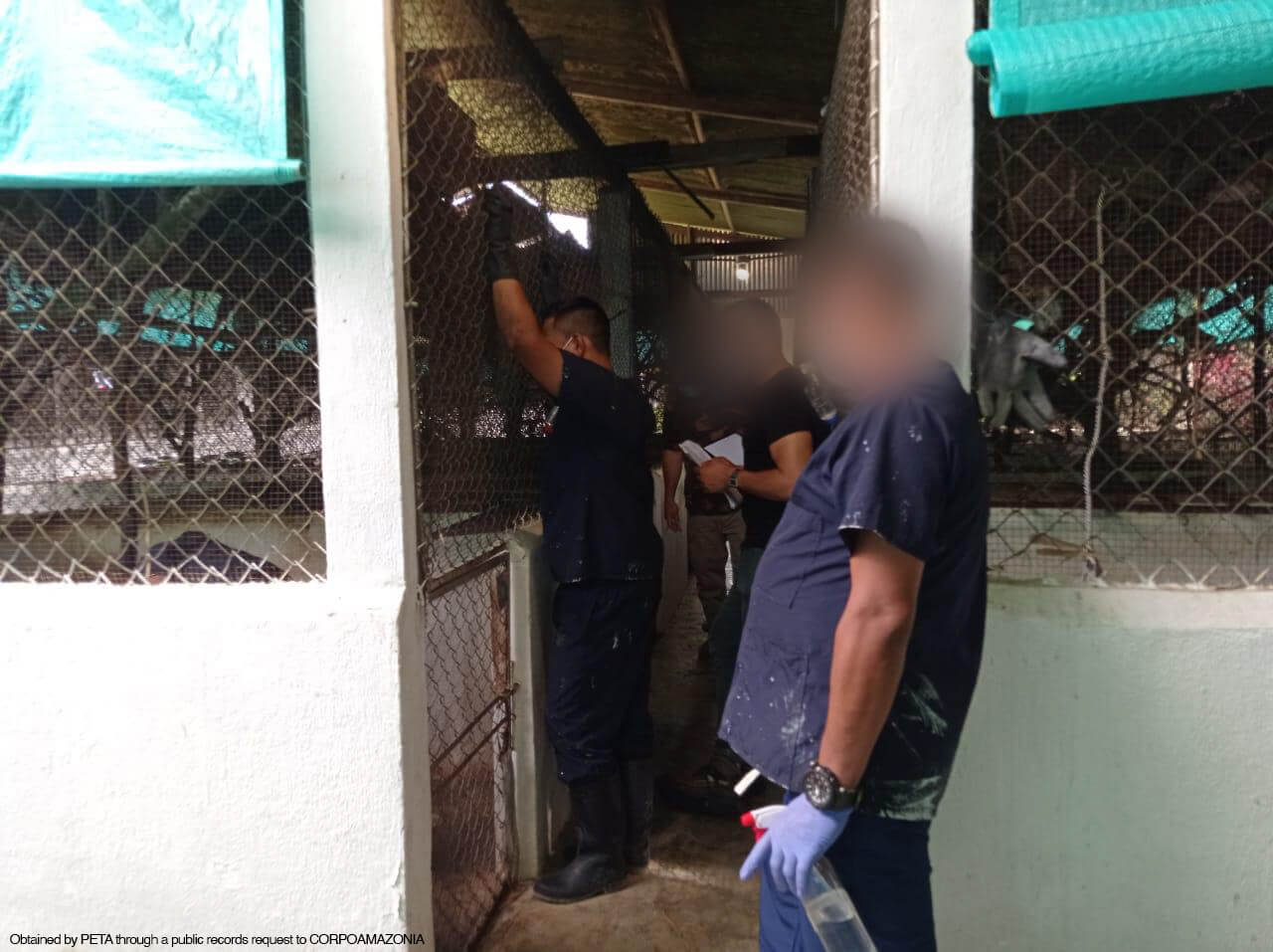
In 2024, Colombia hosted the 16th meeting of the United Nations’ premier biodiversity conference, the Convention on Biological Diversity, or COP16. The country won the coveted hosting spot by talking a big game about its commitment to protecting biodiversity and becoming a “global powerhouse for life.”
However, there seems to be an enormous gap between the country’s commendable intentions and the kidnapping of monkeys it allows for questionable biomedical experimentation.
What You Can Do
Monkey experimenter Manuel Elkin Patarroyo died in January 2025. His son’s announcement of the upcoming closing of this decrepit laboratory should not deter authorities from continuing their investigation into the apparent violations of animal welfare regulations at the facility, where monkeys endured horrible deaths.
You can help by TAKING ACTION to urge Colombian officials to ban the use of monkeys in biomedical experiments.
